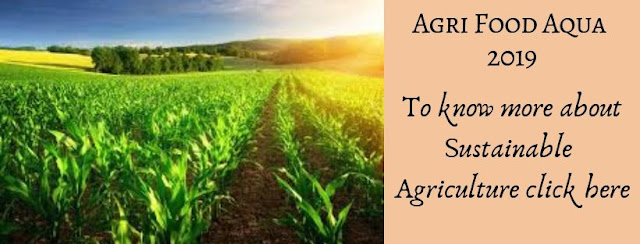Sustainable Agriculture
Sustainable
Agriculture is farming in sustainable ways based on
an understanding of ecosystem services, the study of relationships between
organisms and their environment. It is a suitable method structure that comes
with profit, environmental situation, fairness, health, business and familial
aspects on a farm setting. The word "sustain,” derived from the Latin word
sustainer (sus-, from below and tenure, to hold), to keep in existence or
maintain.
Its help in like:
• It Enhances the
environmental quality and the natural resource base upon which the agricultural
economy depends.
• It makes the most
effective use of nonrenewable resources and on-farm resources and integrates,
where appropriate, natural biological cycles and controls.
• It Sustains the
economic viability of farm operations.
• It Enhances the quality
of life for farmers and society.
There square measure many
key principles related to property in agriculture are:
1 Water
In some areas, decent
rainfall is available for crop growth, but many other areas require irrigation.
For irrigation systems to be sustainable, they require proper management (to
avoid salinization) and must not use more water
from their source that is naturally replenishable.
2 Soil
Soil management
techniques include no-till farming, Keyline design, windbreaks to reduce wind
erosion, incorporating carbon-containing organic matter back into fields,
reducing chemical fertilizers, and protecting soil from water run-off.
3 Phosphate
Phosphate is a primary
component in chemical fertilizer. It is the second most important nutrient for
the plant after nitrogen and is often a limiting factor. It is vital for
property agriculture because it will improve soil fertility and crop yields.
Phosphorus is involved in all major metabolic processes including
photosynthesis, energy transfer, signal transduction, macromolecular
biosynthesis, and respiration.
4 Land
The land is a finite
resource on Earth. And though the enlargement of agricultural land will
decrease multifariousness and contribute to deforestation.
5 Energy
Energy is employed all
the method down the organic phenomenon from farm to fork. In industrial
agriculture, energy is employed in on-farm of food process, storage, and
transportation processes.




Comments
Post a Comment